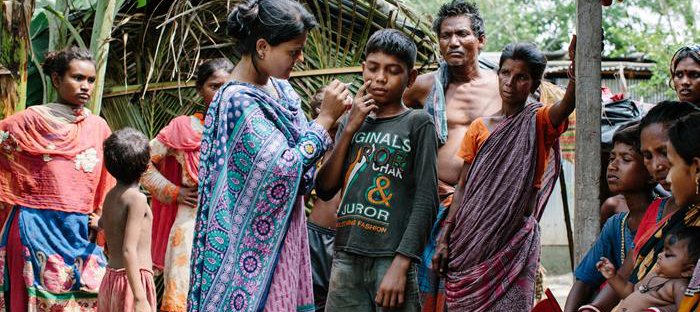Contact tracing is crucial to stopping Covid-19 and leprosy

Covid-19 contact tracing is about speed and caution
Covid-19 is a highly contagious virus and that you can contract after very limited contact with a contagious person. Nations such as South Korea have been leading the charge against Covid-19 with a contact tracing phone app that alerts individuals if they have been near a person who has been diagnosed with Covid-19. Other nations and big tech firms are working on similar apps as others aim to copy the success of South Korea.
These extreme efforts are important because Covid-19 spreads very quickly and contracting the virus can lead to patients needing intensive care treatment very soon after being infected. If a person knows that they have been close to a person who has the virus then they can get tested and can self-quarantine if necessary. These steps are crucial in stopping the spread of the virus
Leprosy contact tracing is about close contacts
Unlike Covid-19, leprosy is a mildly infectious disease. Around 95% of the world population is immune and only a small number of people affected by leprosy are ever infectious. Once a person has taken MDT treatment for 72 hours, they stop being infectious (if they ever were).
The people most likely to develop leprosy are those who are living with an untreated, infectious person affected by leprosy. So, when we diagnose a person affected by leprosy, we make a list of their household members (contacts) and we screen them all for symptoms of leprosy. If we find any more people with leprosy, we put them on treatment too. Recent research suggests that around up to 13 people per 1000 household members ever contract leprosy.
All people who live in leprosy endemic communities should be aware of the signs and symptoms of leprosy and check themselves regularly. Anyone who thinks they have signs/symptoms of leprosy then they should report to the nearest health centre.
Contact tracing is essential in the fight against leprosy
Although leprosy does not spread as fast as Covid-19, it is still spreading in communities across Asia, Africa, and South America. That spread is continuing to devastate lives and it must be stopped. Governments have a crucial role to play in providing resources for health workers and leprosy NGOs to be able to trace the contacts of people affected by leprosy so that they can be monitored for symptoms and provided with medication if symptoms are found.
If you are in a country that has cases of leprosy, you can write to your political representatives and ask them to grow these contact tracing efforts, rather than let them slip in the aftermath of lockdown.